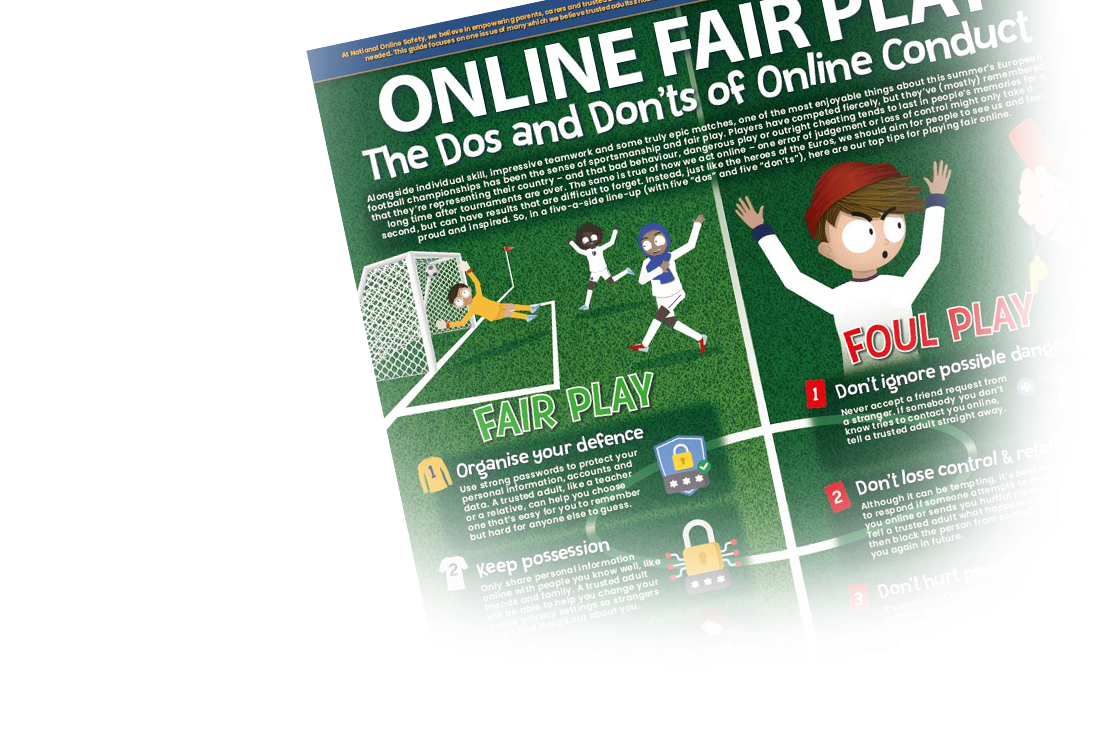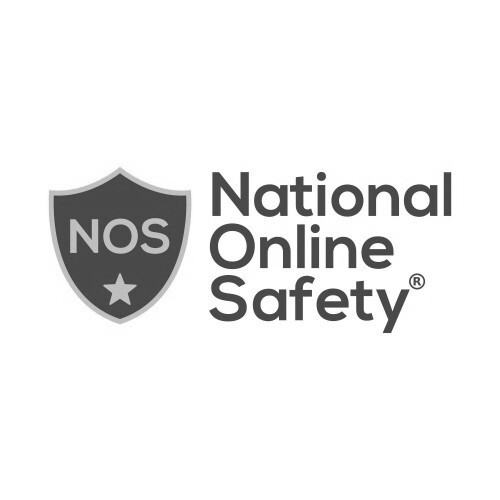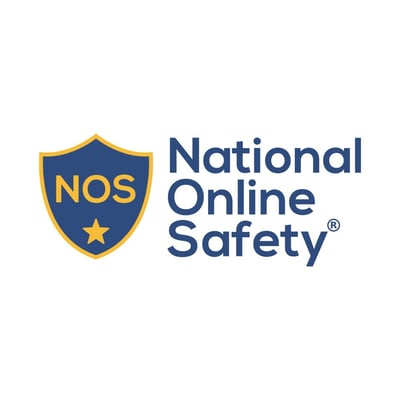At National Online Safety, we provide multi-award-winning online safety education for the whole school community. It’s our mission to make the internet a safer place for children. We believe that when children go online to learn, communicate or play, they should be able to do so safely. That’s why we provide schools all over the world with the knowledge they need in order to tackle new and evolving online risks.
Online Fair Play: the Dos and Don'ts of Online Conduct
This week's free online safety guide focuses on online fair play. It highlights how to tackle a range of potential risks such as online strangers, hurtful messages and an overspending of time online.

A free online safety guide on online fair play.
Alongside individual skill, impressive teamwork and some truly epic matches, one of the most enjoyable things about this summer’s European football championships has been the sense of sportsmanship and fair play. Players have competed fiercely, but they’ve (mostly) remembered that they’re representing their country – and that bad behaviour, dangerous play or outright cheating tends to last in people’s memories for a long time after tournaments are over. The same is true of how we act online – one error of judgement or loss of control might only take a second, but can have results that are difficult to forget. Instead, just like the heroes of the Euros, we should aim for people to see us and feel proud and inspired. So, in a five-a-side line-up (with five “dos” and five “don’ts”), here are our top tips for playing fair online.
In this guide, you'll find tips on a number of potential risks such as online strangers, hurtful messages and an overspending of time online.

